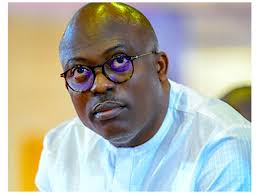Many football enthusiasts and supporters of the Super Eagles of Nigeria are worried that the current squad lacks a natural playmaker in the mould of a former midfielder, Jay Jay Okocha. A former player and coach, Samson Siasia, re-echoed it recently; KEHINDE OSASONA writes.
The issue
While dissecting the performance of the Super Eagles of Nigeria a few weeks ago, an ex-Super Eagles player and manager, Samson Siasia, urged the handlers to do something about the lack of creativity in the team’s midfield.
Siasia called on stakeholders to source for a creative midfielder in the mould of Jay-Jay Okocha “so that the team can re-enact its feat during competions. The former ace striker’s comments came against the backdrop of an away draw secured by the national team in their recent game against Rwanda in their campaign for the African Cup of Nations qualifiers.
While the match lasted, keen football analysts, coaches, and supporters lamented the absence of a playmaker, expressing regrets that the match merely highlighted the Eagle’s flaws and the team’s struggle in the attack.
According to Siasia, the lack of an attacking midfielder in the team did not allow for creation of penetrative channels for the forwards to strike.
Although Alex Iwobi, who plies his trade as a midfielder for Fulham, a Premier League Club, has since been touted to have stepped into Okocha’s shoes, Siasia insisted that the player could not effectively create or attack despite being given a consistent place in the team. Iwobi’s impact in the playmaking position, he noted, has not been impressive.
He said, “Nigeria is yet to find a suitable replacement for Okocha since the former Bolton Wanderers star quit international football in 2006. Former Chelsea midfielder John Mikel Obi was expected to take up the role, but failed to live up to expectations.
“Fulham star Alex Iwobi has been used in the number 10 role in recent years, but he is not good enough to play the position. Iwobi cannot play that position. He’s a good player, but he’s not doing as much as he’s supposed to as an offensive player. We have to look for that person in the centre of the field, who can give the last passes and scores goals.
“We don’t have an offensive midfield player that can give the last pass to the strikers. We have great strikers, but we need someone that is missing. In the defence and other parts, right and left midfield, we are good. We need someone like Jay-Jay Okocha, but it has to be somebody that can score more than he did.”
Toeing a different line, another former midfielder Mutiu Adepoju, who also participated in three World Cups with the Super Eagles, regretted that the local media and fans were guilty of putting too much pressure and spotlight on the young players.
Adepoju played alongside Okocha as Nigeria won the 1994 Nations Cup and his career also took him to Turkey, Saudi Arabia and Cyprus after making over 50 appearances for the Super Eagles.
A 1989 Under-20 World Cup star, Adepoju insists Nigeria has shown promise in global youth tournaments that it can produce midfielders who can bring success back to the national side.
Adepoju told BBC Sport Africa that, “I believe calling young players in the youth teams as the next Messi or Jay-Jay Okocha is unfair and unnecessary.”
According to him, indulging in such comparisons is setting upcoming players up for failure because the weight of expectations will definitely affect them mentally.
“It’s the main reason some players refuse to work hard and be themselves because they easily get carried away by what the press writes about them.
“It’s the reason we have not seen plenty of younger talent that have not made the step-up to senior level over the last ten years. We’ve seen in the past decade that we have talented players all over the field who can make our team tick again,: he said further.
Adepoju also said, “Nigeria continues to dominate the youth events and there are positive signs of better days to come. We just need to nurture these players properly and do away with the hype and noise.
“But if these players are allowed to play their own game and shine, they can be a success both at club and national team level.
“Victor Agali was widely regarded as the next Rashidi Yekini, but he fought extra hard to establish himself and sometimes people expected too much from him. He is an example of someone who saw the burden of that label yet worked hard to establish his own name.”
The 47-year-old Okocha, who retired in 2008, this reporter recalls, was known for his confidence and clever trickery with the ball.
Other qualities that endeared him to football followers globally are his technique, creativity, flair, close control, smooth dribbling skills, his turn of pace and his use of feints, in particular his version of the step over which is rare to find even among the best today.
Okocha won the hearts of many during his playing days with his style and flair. The ex-Super Eagles star also chalked many successes including winning back-to-back BBC African Footballer of the Year in 2004 and 2005.
He also won the Nigerian Footballer of the Year on seven occasions and though he never won the CAF African Player of the Year award, he was part of the top three thrice (1998, 2003 and 2004).
However, while fielding questions on a radio programme some time ago, Okoch was quoted as admitting that the lack of creative midfielders is holding the current Super Eagles squad back.
“We should support these players and let them flourish on their own instead of unfairly putting them under pressure by calling them the next this or that.
“I think people need to stop the obsession with that new Jay-Jay label because it’s unfair on these young players,” he said.
Despite his standpoint on the lacuna created by his exit from the national team, the search for his successor will continue for a long time as, like Siasia, many have continually lamented the absence of a true playmaker each time the national team prepares for a global fiesta.
The search continues
Ghana international Mohammed Kudus, while eulogising Okocha as the greatest African to have played football in a recent interview with Sky Sports, recalled the long-term influence of his creative talent and ability to entertain audiences.
Kudus said, “I will explain from my lens how I see creative players and trying to entertain the game. That can never be washed away. The fans can never forget the experience and the entertainment you give them on the pitch.
“I know now goals and assists are important but I like creative players and players that like to entertain the fans. I like to do something that is different from what everyone is doing.”
In recent years, Under-17 World Cup winners like Rabiu Ibrahim and Kelechi Nwakali, Joel Obi, and Alex Iwobi, have all been hailed as a successor by fans, believing they could help bring back the flair and creativity needed for the eagles to become world beaters again.
Speaking exclusively to Blueprint Weekend, Alex Okoromi, a football analyst and Super Eagles supporter, said the renewed campaign was necessary, adding that the team “is seriously lagging behind.”
“Before now, we have had names like Christian Obodo, Seyi Olofijana, Uche Kalu and a host of others as possible replacements in the past, but a few years after, we are yet to get the needed midfield maestro that could fill the gap and we are here deceiving ourselves as if everything is fine.
Okoromi said, “I still believe our eagles need that one player with vision, intelligence and ability to turn any game around using his individual skill.
“The truth is; we cannot shy away from that and for me all hands must be on the deck until that is achieved, otherwise we would continue to be the laughing stock before the globe.
“For instance, look at what happened at the last Nations Cup, a playmaker would have reduced the pressure for us, meandered through the opposition defence occasionally, juggling and playing around the ball, before you know it, the rest of the players would have less stress.
“But what did we get? a midfield without a maestro; hence, the loss of the much-craved trophy to the Elephants of Cote D’Ivoire despite reaching the final.”
.png)
 2 hours ago
9
2 hours ago
9








 English (US) ·
English (US) ·